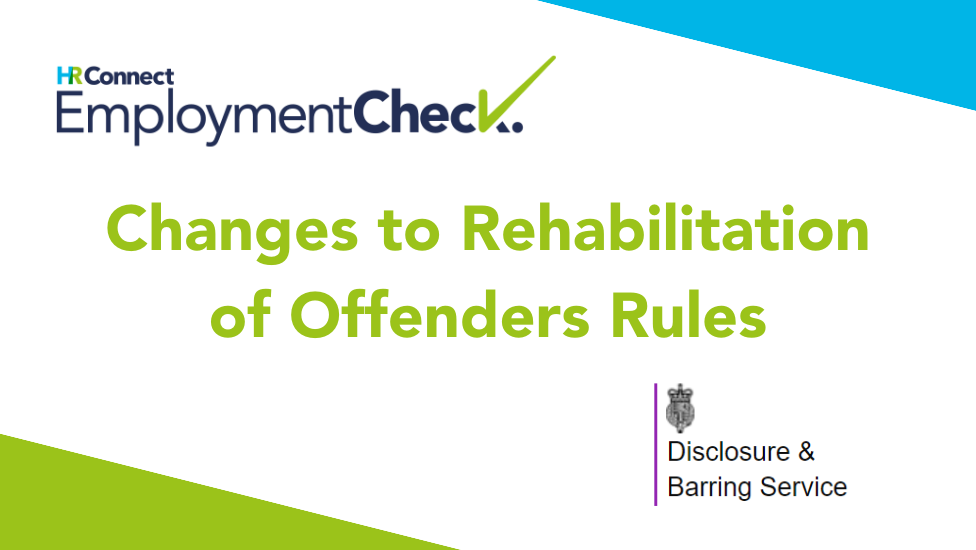
DBS Changes to Rehabilitation of Offenders Rules
From 28th October 2023, the DBS are making a number of changes to the Rehabilitation of Offenders (ROA) Rules and the amendment to filtering affecting Basic, Standard and Enhanced checks.

Changes to ROA (affecting Basic, Standard and Enhanced checks):
From 28th October, custodial sentences of over 4 years that are not already excluded (such as life sentences or sentences of imprisonment for public protection), will be able to become spent for the first time. The changes do not apply to persons sentenced to more than 4 years imprisonment following a conviction for any serious violent, sexual, or terrorist offences listed in Schedule 18 of the Sentencing Act 2020. These convictions will continue to never become spent and will therefore always be disclosed.
In addition, rehabilitation periods for some disposals/sentences will be reduced. For example:
- Custodial - sentences of more than 1 year and up to 4 years will now become spent 4 years after the end of the sentence.
- Custodial - sentences of up to 1 year will now become spent 1 year after the end of the sentence.
- Community - Orders and Youth Rehabilitation Orders will now become spent at the end of the order.
Changes to Filtering Rules (affecting Standard and Enhanced checks):
The current Filtering rules that dictate the content of Standard and Enhanced checks will also change on this date with the impact of all unspent records always being disclosed.
This change will mean that in limited circumstances, some applicants will now see additional unspent records being disclosed.
The following scenarios demonstrate the most common circumstances in which additional records will now appear on Standard and Enhanced checks.
Scenario 1: Unspent offence on Standard or Enhanced check:
Marvin is a support worker and has applied for a new Enhanced DBS check as part of his employer’s re-check policy. His last Enhanced DBS check did not have any information on it.
Marvin’s new Enhanced DBS checks hows a Restraining Order handed down in 1998. The restraining order is ‘indefinite’ so it has not become spent.
It did not show up on Marvin’s previous Enhanced DBS certificates because it is more than 11 years old, not for a specified offence, and not a custodial sentence.
Scenario 2: Youth Conditional Caution on Standard or Enhanced check:
Yasmin received a Youth Conditional Caution for shoplifting 2 weeks ago.
While Youth Conditional Cautions have previously not been disclosed on Enhanced DBS checks, Yasmin’s caution will not become spent for 3 months in total and will therefore appear on her new DBS certificate.
Scenario 3: Relevant Orders and ‘drag on’:
Molly was convicted of Theft and Common Assault on 24 July 2001 and received a Community Order and an indefinite Restraining Order.
On 1 November 2023 Molly applies for a job at a care home and is eligible for an Enhanced DBS check with a check of the adults barred list.
Molly’s DBS check contains all the information from her 2001 conviction, where previously no information was disclosed. This is because the indefinite Restraining Order means that all disposals at that sentencing are also unspent. This aspect of ROA rules is commonly referred to as ‘drag on’.
Molly could apply to the court to have the Restraining Order removed. At this point all records would become spent and would not be disclosed.
EmploymentCheck have also published a handy FAQs PDF >> that features some of the most common questions raised with the DBS so far, which you may find useful.
If you have any questions, please do not hesitate to contact us on 0331 630 9545 or employmentcheck@hrconnect.org.uk



